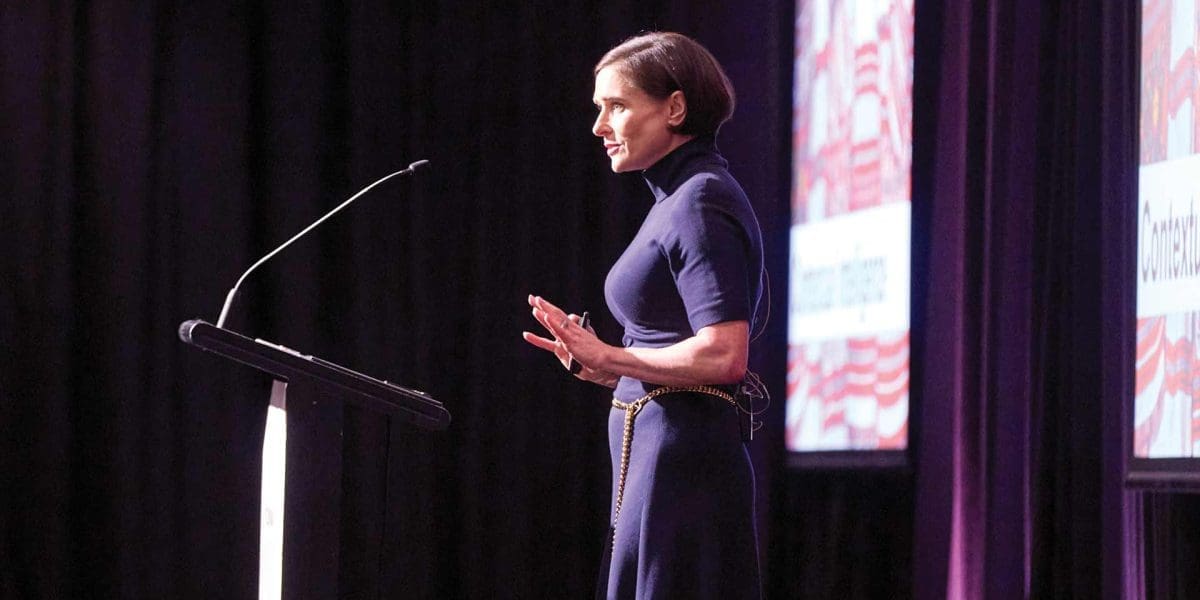How To Become A Better Negotiator
Dr. Alia Bojilova – Negotiating Under Pressure and the Power of Unthinking
Dr. Alia Bojilova has coached SAS soldiers, Olympic athletes, and negotiated her team’s release while being held hostage in Syria. At the Journey to Excellence event, she stepped onto the stage in high heels and smiled. “Do not run in high heels,” she said, before telling the audience she had changed her plan.
“I decided this morning that my assumption is this audience already knows everything about negotiation. I wanted to dig deeper and look at the preconditions, the things that support us and are essential for the outcome negotiation seeks.”
Her focus was on creating “space between the thinker and the thought” and learning to “practice unthinking a whole heap more often.” For her, negotiation is not the old model of win-lose, “big dog and small dog, territoriality, boundary thinking, compromise at best.” Instead, it is about recognising that “multiple conflicting narratives can coexist and be true at the same time” and using conflict as “a conduit to agreement.”
She described the “balcony view” as essential for negotiators. “You have to see a multitude of perspectives, lean into them, and combine them harmoniously. They do not just fit, they grow something bigger than you could have anticipated alone.” Too many of us, she warned, live in “the basement” with fixed solutions, territoriality, and a focus on proving rather than improving. What is needed is “contextual intelligence,” the ability to “find common ground even with your worst adversary” and to suspend assumptions in favour of curiosity.
Her own career has tested these ideas in extreme conditions. In 2013, while serving as a New Zealand Army officer on a UN mission in Syria, she and two colleagues were taken hostage by over 38 armed militia members. “Our probability of survival was zilch to none,” she said. “Especially for a female officer in that environment.” The team was held just 500 metres from safety, with no viable extraction route that would not ignite further conflict. “Clearly, we talked our way out of our predicament,” she said, noting that they achieved “a great deal more than just surviving.”
From that experience, she reinforced the military concept of the OODA Loop. “Observe, Orient, Decide, Act. Do not shoot before you aim.” In high-pressure situations, she said, the discipline to pause and create space for curiosity is “the single most significant predictor of success.” She calls it the ability to “turn woe into wonder” and to see things you thought you knew from a new angle.
Negotiation, in her view, is about “shifting away from the habitual and consciously noticing when it has become suboptimal.” It is about “finding common ground with your worst adversary by allowing them to share their perspective” and replacing the rush for answers with “as many questions as you can possibly pack” into the space you have.
Her most unexpected lesson came after Syria. “The most ferocious hostage taker is now, for the last nine years, someone who has run a school for girls for us in the very area we were held. We have educated over 1,000 girls who would otherwise have been nothing but a transactional item past the age of 14.”
She closed with a challenge. “My hope is we unthink a whole heap more often, stop being the knowing ones, and see how much better things can get when we create space for dialogue.” And with that, she left the audience with a phrase that crosses cultures. “To go far, you have to go slow.”
Action Points from Dr. Alia Bojilova’s Keynote
- Focus on the preconditions for negotiation, not only tactics.
- Create space between the thinker and the thought to enable better decisions.
- Use conflict as a conduit to agreement.
- Take the “balcony view” to see and combine multiple perspectives.
- Develop contextual intelligence to find common ground, even with adversaries.
- Apply the OODA Loop – Observe, Orient, Decide, Act – before taking action.
- Replace rushing for answers with asking better questions.
- Slow down to go far, even in high-pressure situations.
